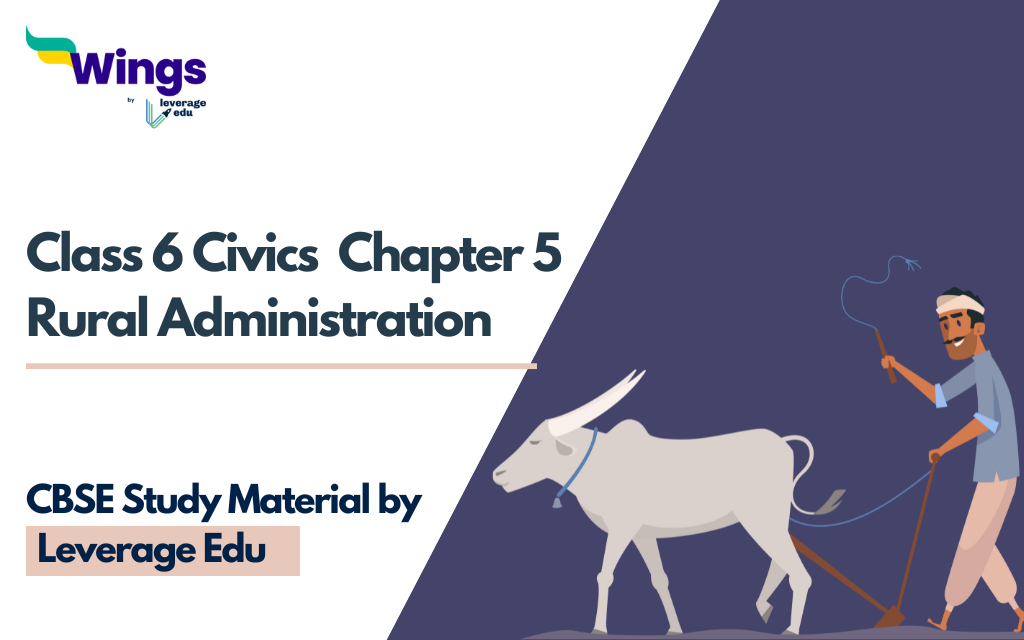Summary: NCERT Class 6 Civics Chapter 5
In NCERT Class 6 Civics Chapter 5, we explore how villages are governed and managed. The Gram Panchayat is like a village council, made up of local leaders chosen by the villagers. They make important decisions for the village. The head of the Gram Panchayat is called the Sarpanch. They help in solving problems and look after the development of the village.
Download Social Science Class 6 Civics Chapter 5 Important Questions and Answers PDF
Explore all the Chapters of Class 6 Civics:-
Contents
We learn about the three levels of government: local, state, and central. The Gram Panchayat is the local level, responsible for village matters. The Block Panchayat is at the next level and looks after a group of villages. The District Panchayat is the highest local authority, overseeing the entire district.
We also discover how these councils work together to make plans for the village’s progress. They decide on things like building schools, hospitals, and roads. This chapter helps us understand how our villages are managed for a better and brighter future.
Read this blog “Full Form of PDO” to learn more about Panchayat Development Officer.
Download Social Science Class 6 Civics Chapter 5 Important Questions and Answers PDF
Explore all the Chapters of Class 6 Civics:-
Rural Administration Class 6 Notes
Let us now look at Class 6 civics Chapter 5 important questions and answers.
Important Questions and Answers in NCERT Class 6 Civics Chapter 5
1. What is the work of the police?
Ans. The police are responsible for maintaining law and order in a town or city. They help keep people safe, prevent crimes, and catch those who break the law.
2. List two things that the work of a Patwari includes.
Ans. The work of a Patwari includes:
a. Keeping records of land ownership and its changes.
b. Collecting land revenue from farmers on behalf of the government.
3. What is the work of a tehsildar?
Ans. A tehsildar is an important officer in the administration of a district. Their main job is to look after the collection of land revenue and maintain land records.
4. What issue is the poem trying to raise? Do you think this is an important issue? Why?
Ans. The poem is trying to raise the issue of the importance of fair and just land ownership. It suggests that everyone should have equal rights to land. This is an important issue because it affects the livelihoods of many people.
5. In what ways are the work of the Panchayat, that you read about in the previous chapter, and the work of the Patwari related to each other?
Ans. The work of the Panchayat and the Patwari are closely related. The Panchayat is responsible for local self-government and looks after various village-level matters. The Patwari, on the other hand, helps in maintaining land records which is crucial for the functioning of the Panchayat.
6. Who is in charge of all the police stations in a district? Find out.
Ans. The person in charge of all the police stations in a district is called the Superintendent of Police (SP). They oversee the work of all the police officers in the district.
7. How do women benefit under the new law?
Ans. Under the new law, women benefit in various ways. They have the right to own and inherit land, which means they can have their own property. This gives them financial independence and security.
Also Read:
NCERT Class 6 Chapter 1 Understanding Diversity
NCERT Class 6 Chapter 2 Diversity and Discrimination
NCERT Class 6 Chapter 3 Government
NCERT Class 6 Chapter 4 Panchayati Raj
Explore Notes of All subjects of CBSE Class 6:-
| CBSE NCERT Notes Class 6 English | CBSE NCERT Notes Class 6 History | CBSE NCERT Notes Class 6 Geography |
| CBSE NCERTNotes Class 6 Civics | CBSE NCERT Notes Class 6 Mathematics | CBSE Notes of Class 6 Science |
Explore NCERT Class 6 Notes for other subjects:
FAQs
Ans: In this chapter, we learn how villages are governed and managed. The Gram Panchayat is like a village council, made up of local leaders chosen by the villagers. They make important decisions for the village.
Ans: The police are responsible for maintaining law and order in a town or city. They help keep people safe, prevent crimes, and catch those who break the law.
Ans: A tehsildar is an important officer in the administration of a district. Their main job is to look after the collection of land revenue and maintain land records.
Follow Leverage Edu for complete study material on CBSE Notes of Class 6 Civics


 One app for all your study abroad needs
One app for all your study abroad needs












 60,000+ students trusted us with their dreams. Take the first step today!
60,000+ students trusted us with their dreams. Take the first step today!